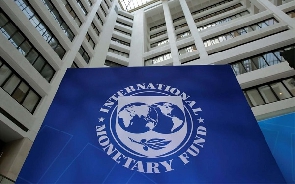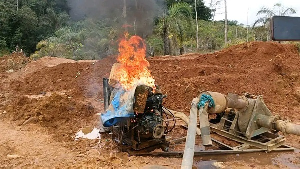President Mahama has announced new measures as part of his government’s war on corruption. In an address at this year’s Eid-ul Adha on Tuesday, he announced the establishment of Public Complaint Centers (PCCs) where citizens can go to report corruption within public institutions from 2014 as part of fighting corruption in Ghana (see, “Fight against Corruption, Government set up Complaint Centres”, Ghanaweb, October 16, 2013). In this article, I intend to discuss the role of the Commission on Human Rights and Administrative Justice (CHRAJ) in the fight against corruption vis-à-vis the new measures announced by the President.
CHRAJ is one of the constitutional bodies established under the 1992 Constitution with anti-corruption as part of its mandate. According to its website, its anti-corruption powers stem from Articles 218(a)(e) and 284 to 288 of the 1992 Constitution and Section 7 (1) (a), (e) & (f) of Act 456 that established it. The Commission investigates and works to prevent corruption. It is mandated to investigate abuse of power and “all instances of alleged or suspected corruption and the misappropriation of public monies by officials”. It also investigates allegations of Conflict of Interest under Chapter 24 (Articles 284 to 288) of the 1992 Constitution.
As an anti-corruption agency, the Commission among others can also investigate disclosures of impropriety under the Whistleblowers Act and complaints of victimization of whistleblowers in both the public and private sectors; provide free advice and services on corruption prevention in Ghana; work to reduce opportunities for corruption in corruption-prone sectors by assisting to implement corruption prevention measures and putting in place robust systems for checking corruption; and finally, sensitize the general public about corruption and enlist public support to fight corruption at all levels of society.
From the above, one wonders why the President has announced a new structure or body to duplicate the constitutionally mandated role of CHRAJ in the area of fighting corruption. Why can’t the public be asked to report any such corrupt practices by officials to the offices of CHRAJ? The Commission has ten regional offices that co-ordinate its work in the ten administrative regions of Ghana. In addition, it has 2 sub-regional and ninety-nine district offices across the country to ensure that its work is brought to the doorstep of the ordinary person. But is CHRAJ effective when it comes fighting corruption in Ghana?
The President’s announcement is short of details so one cannot tell how many of the PCCs will be established throughout the country. It is also unknown whether the President’s announcement will require formal legislative backing or an Executive Instrument or Order before it becomes operative.
My main concern regarding the presidential announcement is, whether the new anti-corruption PCCs is an indication that CHRAJ has failed in executing its Anti-Corruption mandate effectively. As a human rights practitioner and someone who once worked in a Race Equality watchdog in the UK, I am a bit sympathetic to CHRAJ and reluctant to jump into conclusion that it’s been a failure in the crusade against corruption in Ghana. If anything at all, it’s Ghana THAT has failed CHRAJ, particularly, the judicial arm of governance. When CHRAJ took the initiative to investigate a cabinet minister under Kufuor’s government for conflict of interest and corruption, the court ruled that its initiative as unconstitutional. That CHRAJ had no powers to initiate investigations into corruption on its own without prior complaint. That judgement dealt a big blow to the Anti-Corruption mandate of CHRAJ and I believe the constitutional body has never recovered from the defeat it suffered at the hands of the judiciary.
Again, it is important to know that the primary function of CHRAJ should be the respect for, protection and promotion of the (human) rights of citizens. The fight against corruption should be one of the primary functions of Ghana Police Service and of late the Economic and Organized Crime Office (EOCO). The police and EOCO are better resourced than CHRAJ to receive, investigate and prosecute complaints of corruption by public officials. There are more police stations in Ghana than the offices of CHRAJ across the country. For this reason, the fight against corruption in Ghana is a collective failure and cannot be put at the doorsteps of CHRAJ alone.
If the President is serious about fighting corruption in Ghana, then he should refrain from taking knee jerk reactions. The planned PCCs are not the right prescription for fighting corruption in Ghana. At best, they are nothing but duplication of the roles of existing bodies and organisations such as CHRAJ, EOCO and the police. The resources envisage for the proposed PCCs could be better spent on strengthening CHRAJ and improving its effectiveness. In the midst of scarce resources with a government struggling to collect enough revenue to pay workers, essential services and critical infrastructure development, such duplication of public roles would be an expensive white elephant and perhaps, a nine day wonder.
Mr President, we are all aware that the Ghana Police Force cannot be relied on to fight corruption because many of its men and women in uniform are themselves accused of being corrupt. CHARJ is weakened by the court judgement that should not have been allowed to stand on the statute books as case law and EOCO has become nothing less than a political instrument to witch hunt adversaries and to cover up corrupt practices and officials from within but your proposed solution is not the answer.
The “create, loot and share” enterprise in Ghana is led by the Executive arm of governance with active support by the Legislature through its inability or unwillingness to hold the Executive accountable and condoned by the Judiciary through judgements that give tacit approval for corruption as revealed by the Judgement Debt Commission hearings. Your proposal has no locus in law and will suffer worst fate from the Judiciary than CHRAJ did.
The solution lies in not the establishment of more structures to fight corruption but the reorganisation of existing ones to strengthen and improve their efficacy. For example, your government must introduce legislation to enable CHRAJ to investigate suspected or alleged corruption by public officials without complaints from the public. Fund Anti-Corruption training for CHARJ and other bodies including the judiciary to improve their capabilities in dealing with the menace of corruption. The establishment of special Anti-Corruption Courts to deal speedily with corruption cases such as GYEEDA; strengthening the investigative arms of the police and other institutions in the area of anti-corruption and credible and verifiable action against corruption police officers such as dismissals and prosecutions, etc are all measures that would be more effective operationally as well as cost effective than your new proposal. The delay in dealing with those indicted in the GYEEDA report is not encouraging and in fact makes your proposed PCCs as diversion tactics or buying time and hoping that GYEEDA will go away.
What Ghana needs are strong constitutional institutions in general but in particular the fight against corruption. The proposed PCCs would weaken CHRAJ as it would be seen as competing against CHRAJ, EOCO and the police for scarce resources. Competition per se is a good idea, especially in the market place where it is healthy and offers better alternatives but I am afraid, competition between CHRAJ and PCCs would be a fight between two elephants. Only corrupt officials would benefit from such unhealthy struggle for recognition. What anti-corruption institutions and agencies need in the war against corruption is collaboration and cooperation and not competition.
The PCCs idea is a bolt-on policy which has not been carefully thought through and must be reconsidered. It is not too late for the resources earmarked for the PCCs to be reinvested into CHRAJ and other existing institutions to fight corruption. In fact, there is a better alternative and that is, to decouple the Anti-Corruption mandate of CHRAJ and set up a stronger, independent and more effective Anti-Corruption Agency and to free EOCO from political control and manipulation so that it can investigate corrupt politicians and officials irrespective of their political colours or positions. Until Ghanaians see real action on fighting high level corruption, the proposed PCCs will be mere talk and your government will remain tainted by corruption.
Opinions of Thursday, 14 November 2013
Columnist: Ata, Kofi














